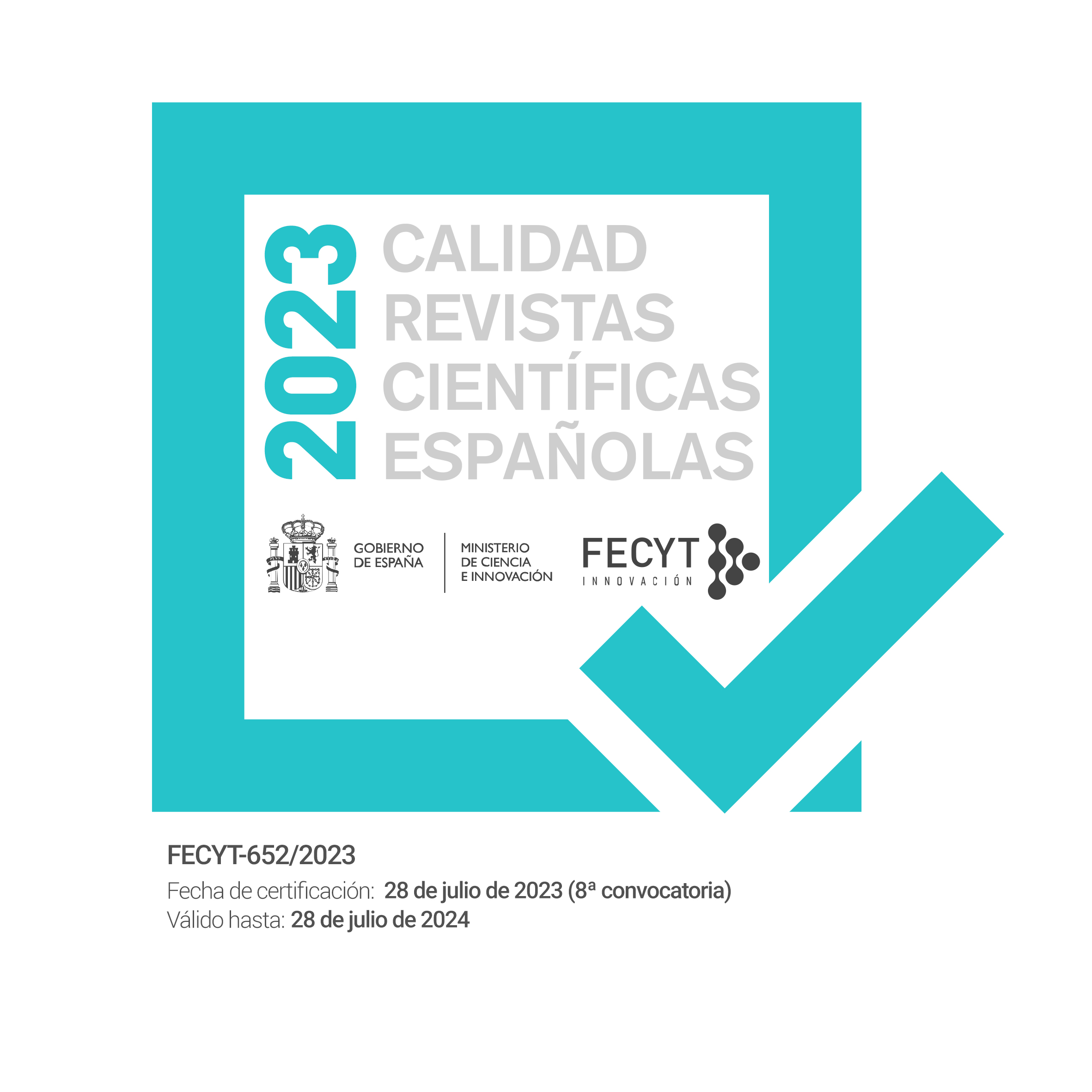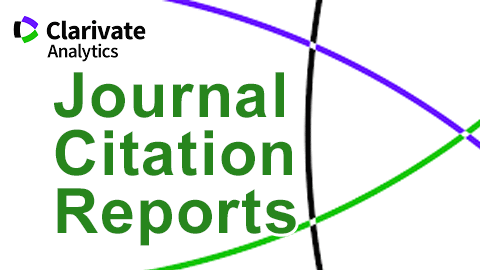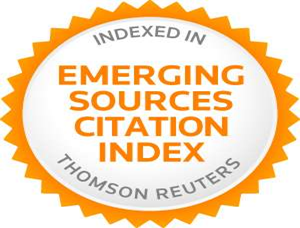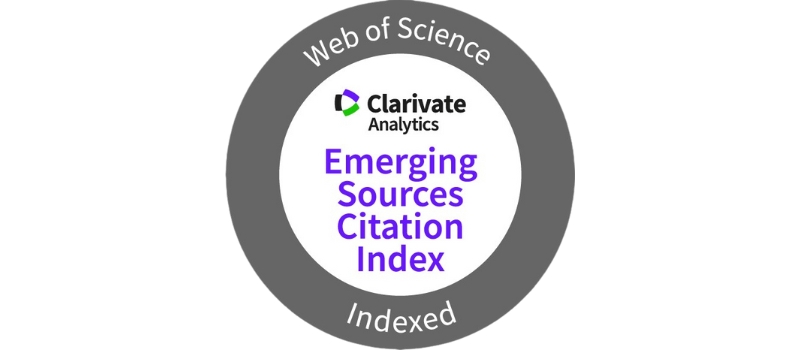Investigating Recontextualisation Processes in Scientific Digital Practices: The SciDis Database
DOI:
https://doi.org/10.58859/rael.v23i1.649Palabras clave:
digital discursive practices, scientific dissemination, recontextualisation processes, websites, social mediaResumen
Scientific communication is exploiting innovative dynamics of research dissemination and knowledge transfer through digital platforms which allow for the wide circulation of disciplinary information for diversified audiences. Against this backdrop, recontextualisation is a key phenomenon, enhanced by medium-dependent affordances, the combination of semiotic modes and users’ discursive choices. In this paper, we present and justify the SciDis Database, collected to analyse this complex phenomenon in various digital scientific dissemination practices, including X/Twitter and Instagram posts, research digests, feature articles, Ask-an-Expert sites, The Conversation platform, explainers, and lay summaries. We conceptualise each of them, considering two parameters to frame them: whether they represent web-hosted or social media practices, and whether they entail author-generated or writer-mediated knowledge. Exploitations and applications of the SciDis Database are emphasised in connection with digital discourse analysis and digital pragmatics, multimodally-oriented approaches, knowledge communication frameworks, and ethnographically-informed studies.
Descargas
Estadísticas globales ℹ️
|
933
Visualizaciones
|
255
Descargas
|
|
1188
Total
|
|
Citas
Adami, E. (2015). What’s in a click? A social semiotic framework for the multimodal analysis of website interactivity. Visual Communication, 14(2), 133-153. https://doi.org/10.1177/1470357214565583 DOI: https://doi.org/10.1177/1470357214565583
Askehave, I. & Nielsen, A. E. (2005). Digital genres: A challenge to traditional genre theory. Information Technology & People, 18(2), 120-141. https://doi.org/10.1108/09593840510601504 DOI: https://doi.org/10.1108/09593840510601504
Bartling, S. & Friesike, S. (2014). Towards another scientific revolution. In S. Bartling & S. Friesike (Eds.), Opening Science: The Evolving Guide on How the Internet is Changing Research, Collaboration and Scholarly Publishing (pp. 3-15). Cham: Springer. https://doi.org/10.1007/978-3-319-00026-8_1 DOI: https://doi.org/10.1007/978-3-319-00026-8_1
Bezemer, J. & Kress, G. (2008). Writing in multimodal texts: A social semiotic account of designs for learning. Written Communication, 25(2), 166-195. https://doi.org/10.1177/0741088307313177 DOI: https://doi.org/10.1177/0741088307313177
Bhatia, V. K. (2004). Worlds of Written Discourse: A Genre-Based View. New York: Continuum.
Binkley, M., Ertad, O., Herman, J., Raizen, S., Ripley, M., Miller-Ricci, M. & Rumble, M. (2012). Defining twenty-first century skills. In P. Griffin, B. McGaw & E. Care (Eds.), Assessment and Teaching of 21st Century Skills (pp. 17-66). Dordrecht: Springer. https://doi.org/10.1007/978-94-007-2324-5_2 DOI: https://doi.org/10.1007/978-94-007-2324-5_2
Bondi, M., Cacchiani, S. & Mazzi, D. (Eds.). (2015). Discourse in and through the Media: Recontextualizing and Reconceptualizing Expert Discourse. Newcastle upon Tyne: Cambridge Scholars.
Bondi, M. & Cacchiani, S. (2021). Knowledge communication and knowledge dissemination in a digital world. Journal of Pragmatics, 186, 117-123. https://doi.org/10.1016/j.pragma.2021.10.003 DOI: https://doi.org/10.1016/j.pragma.2021.10.003
Bucchi, M. & Trench, B. (Eds.). (2016). Handbook of Public Communication of Science and Technology. London: Routledge. https://doi.org/10.4324/9780203483794 DOI: https://doi.org/10.4324/9780203483794
Calsamiglia, H., & van Dijk T. A. (2004). Popularization discourse and knowledge about the genome. Discourse & Society, 15(4), 369-389. https://doi.org/10.1177/0957926504043705 DOI: https://doi.org/10.1177/0957926504043705
Djonov, E. (2007). Website hierarchy and the interaction between content organization, webpage and navigation design: A systemic functional hypermedia discourse analysis perspective. Information Design Journal, 15(2), 144-162. https://doi.org/10.1075/idj.15.2.07djo DOI: https://doi.org/10.1075/idj.15.2.07djo
Engberg, J. & Maier, C. D. (2015). Exploring the hypermodal communication of academic knowledge beyond generic structures. In M. Bondi, S. Cacchiani & D. Mazzi (Eds.), Discourse in and through the media: Recontextualizing and Reconceptualizing Expert Discourse (pp. 46-65). Newcastle upon Tyne: Cambridge Scholars.
Engberg, J. (2023). Between infotainment and citizen science: Degrees of intended non-expert participation through knowledge communication. In R. Plo-Alastrué & I. Corona (Eds.), Digital Scientific Communication: Identity and Visibility in Research Dissemination (pp. 149-170). Palgrave Macmillan. https://doi.org10.1007/978-3-031-38207-9_7 DOI: https://doi.org/10.1007/978-3-031-38207-9_7
Engberg, J., Fage-Butler, A. & Kastberg, P. (Eds.). (2023). Perspectives on Knowledge Communication: Concepts and Settings. New York: Routledge. https://doi.org/10.4324/9781003285120 DOI: https://doi.org/10.4324/9781003285120
Fairclough, N. (1995). Critical Discourse Analysis: The Critical Study of Language. New York: Longman.
Gotti, M. (2014). Reformulation and recontextualization in popularization discourse. Ibérica, 27, 15-34.
Herrando-Rodrigo, I. (2022). “Our editors work with academics and researchers to bring you stories no one else in the media can”: Credibility building in The Conversation.com. Paper presented at CMC2022: 9th Conference on Computer-Mediated Communication (CMC) and Social Media Corpora. Santiago de Compostela, Galicia, Spain. September, 25–29. https://doi.org/10.5281/zenodo.8064594
Herrando-Rodrigo, I. (2023). Exploring the genre and discourse practices of web-text explainers. Paper presented at AELFE-LSPPC International Conference 2023. Zaragoza, Zaragoza, Spain. June, 28–30. https://doi.org/10.5281/zenodo.8087846
Hyland, K. (2005). Metadiscourse: Exploring Interaction in Writing. London: Continuum.
Iedema, R. (2003) Multimodality, resemiotization: Extending the analysis of discourse as multi-semiotic practice. Visual Communication, 2, 29-57. http://dx.doi. org/10.1177/1470357203002001751 DOI: https://doi.org/10.1177/1470357203002001751
Kastberg, P. (2010). Knowledge communication: Formative ideas and research impetus. Programmatic Perspectives, 2(1), 59-71.
Kastberg, P. (2019). Knowledge Communication: Contours of a Research Agenda. Berlin: Frank & Timme.
Kramer, O. & Gottschling, M. (2021). Recontextualized Knowledge: Rhetoric – Situation – Science Communication. Berlin: De Gruyter. https://doi.org/10.1515/9783110676310 DOI: https://doi.org/10.1515/9783110676310
Kuehne, L. M. & Olden, J. D. (2015). Lay summaries needed to enhance science communication. Proceedings of the National Academy of Sciences, 112(12), 3585-3586. https://doi.org/10.1073/pnas.1500882112 DOI: https://doi.org/10.1073/pnas.1500882112
Lillis, T. (2008). Ethnography as method, methodology, and “deep theorizing”: Closing the gap between text and context in academic writing research. Written Communication, 25(3), 353-388. https://doi.org/10.1177/0741088308319229 DOI: https://doi.org/10.1177/0741088308319229
Linell, P. (1998). Discourse across boundaries: On recontextualizations and the blending of voices in professional discourse. Text & Talk, 18(2), 143-157. https://doi.org/10.1515/text.1.1998.18.2.143 DOI: https://doi.org/10.1515/text.1.1998.18.2.143
Linell, P. (2001). Approaching Dialogue: Talk, Interaction and Context in Dialogical Perspectives. Amsterdam: John Benjamins.
Lorés-Sanz, R., Mur-Dueñas, P. & Lafuente-Millán, E. (Eds.). (2010). Constructing Interpersonality: Multiple Perspectives on Written Academic Genres. Newcastle upon Tyne: Cambridge Scholars.
Lorés, R. (2023). Dual voices, hybrid identities: The recontextualization of research in digital dissemination scientific discourse. Círculo de Lingüística Aplicada a la Comunicación, 93, 69-84. https://doi.org/10.5209/clac.85566 DOI: https://doi.org/10.5209/clac.85566
Lorés, R. (2024a). Digesting psychology: Metadiscourse as a recontextualising tool in the digital communication of disciplinary research. Chinese Journal of Applied Linguistics, 47(2), 178-195. https://doi.org/10.1515/CJAL-2024-0202 DOI: https://doi.org/10.1515/CJAL-2024-0202
Lorés, R. (2024b). Mediating expert knowledge: The use of pragmatic strategies in digital research digests. Journal of Pragmatics 232, 26-40. https://doi.org/10.1016/j.pragma.2024.08.007 DOI: https://doi.org/10.1016/j.pragma.2024.08.007
Lorés, R. & Diani, G. (2021). Disseminating knowledge: The effects of digitalised academic discourse on language, genre and identity. European Journal of English Studies, 25(3), 249-258. https://doi.org/10.1080/13825577.2021.1988262 DOI: https://doi.org/10.1080/13825577.2021.1988262
Luzón, M. J. & Pérez-Llantada, C. (Eds.). (2019). Science Communication on the Internet: Old Genres Meet New Genres. https://doi.org/10.1075/pbns.308 DOI: https://doi.org/10.1075/pbns.308
Maier, C. D. & Engberg, J. (2021). Harvard Business Review’s reframing of digital communication: From professional expertise to practical guidance. Journal of Pragmatics, 176, 186-197. https://doi.org/10.1016/j. pragma.2021.02.005 DOI: https://doi.org/10.1016/j.pragma.2021.02.005
Marwick, A. E., & Boyd, D. (2011). I tweet honestly, I tweet passionately: Twitter users, context collapse, and the imagined audience. New Media & Society, 13(1), 114-133. https://doi.org/10.1177/1461444810365313 DOI: https://doi.org/10.1177/1461444810365313
Mur-Dueñas, P. (2011). An intercultural analysis of metadiscourse features in research articles written in English and in Spanish. Journal of Pragmatics, 43, 3068-3079. https://doi.org/10.1016/j.pragma.2011.05.002 DOI: https://doi.org/10.1016/j.pragma.2011.05.002
Mur-Dueñas, P. (2024). Digital dissemination practices: An analysis of explanatory strategies in the process of recontextualising specialised knowledge. Discourse & Interaction, 17(1), 94-114. https://doi.org/10.5817/DI2024-1-94 DOI: https://doi.org/10.5817/DI2024-1-94
Mur-Dueñas, P. & Lorés, R. (Eds.). (2022). Scientific and Parascientific Practices. Basel: MDPI. https://doi.org/10.3390/books978-3-0365-3822-8 DOI: https://doi.org/10.3390/books978-3-0365-3822-8
Mur-Dueñas, P. & Pascual, D. (2023). Metadiscoursal realisation of pragmatic strategies @ ResearchProject Twitter accounts. Atlantis: Journal of the Spanish Association of English Studies, 45(2), 119-150. https://doi.org/10.28914/Atlantis-2023-45.2.06 DOI: https://doi.org/10.28914/Atlantis-2023-45.2.06
Nunn, E. & Pinfield, S. (2014). Lay summaries of open access journal articles: Engaging with the general public on medical research. Learned Publishing, 27(3), 173-184. https://doi.org/10.1087/20140303 DOI: https://doi.org/10.1087/20140303
Ocepek, M. G. & Westbrook, L. (2015). Question, answer, compare: A cross-category comparison of answers on question and answer websites. New Review of Hypermedia and Multimedia, 21(3-4), 212-226. https://doi.org/10.1080/13614568.2015.1036134 DOI: https://doi.org/10.1080/13614568.2015.1036134
Pascual, D. (2023). Scientific dissemination and professional practices through digital media: The study of pragmatic strategies in the communication of international research projects. Unpublished Doctoral Dissertation. Universidad de Zaragoza.
Pascual, D. (2025). Dialogic markers in Ask an Expert webpages on environmental discourse. Language & Dialogue, in press. https://doi.org/10.1075/ld.00191.pas DOI: https://doi.org/10.1075/ld.00191.pas
Pascual, D. & Mur-Dueñas, P. (2022). Dialogic interaction with diversified audiences in Twitter for Research Dissemination Purposes. Círculo de Lingüística Aplicada a la Comunicación, 90, 61-79. https://doi.org/10.5209/clac.81307 DOI: https://doi.org/10.5209/clac.81307
Plo-Alastrué, R. & Corona, I. (Eds.). (2023). Digital Scientific Communication: Identity and Visibility in Research Dissemination. Cham: Palgrave Macmillan. https://doi.org/10.1007/978-3-031-38207-9 DOI: https://doi.org/10.1007/978-3-031-38207-9
Pounds, G. (2018). Patient-centred communication in ask-the-expert healthcare websites. Applied Linguistics, 39(2), 117-134. https://doi.org/10.1093/applin/amv073 DOI: https://doi.org/10.1093/applin/amv073
Puschmann, C. (2015). A digital mob in the ivory tower? Context collapse in scholarly communication online. In M. Bondi, S. Cacchiani & D. Mazzi (Eds.), Discourse in and through the Media: Recontextualizing and Reconceptualizing Expert Discourse (pp. 22-45). Newcastle upon Tyne: Cambridge Scholars.
Sancho-Ortiz, A. E. (2024). Analysing the functionality of Twitter for science dissemination in EFL teaching and learning. PROFILE: Issues in Teachers’ Professional Development, 26(1), 133-147. https://doi.org/10.15446/profile.v26n1.105685 DOI: https://doi.org/10.15446/profile.v26n1.105685
Sancho-Ortiz, A. E. (2025). Environmental discourse on social media: Exploring engagement in X/Twitter for environmental purposes. Language & Dialogue, in press. https://doi.org/10.1075/ld.00189.san DOI: https://doi.org/10.1075/ld.00189.san
Scott, K. (2022). Pragmatics Online. New York: Routledge. https://doi.org/10.4324/b22750 DOI: https://doi.org/10.4324/b22750
Swales, J. (2004). Research Genres: Exploration and Application. Cambridge: Cambridge University Press. http://dx.doi.org/10.1017/CBO9781139524827 DOI: https://doi.org/10.1017/CBO9781139524827
United Nations. (n.d.). Sustainable Development Goals. Retrieved 9 May, 2024 from https://sdgs.un.org/goals
Valeiras-Jurado, J. & Ruiz-Madrid, N. (2023). The influence of discipline, medium and target audience in multimodal recontextualization practices: The case of popular science online videos. Ibérica, 46, 237-269. https://doi.org/10.17398/2340-2784.46.237 DOI: https://doi.org/10.17398/2340-2784.46.237
Zou, H. J. & Hyland, K. 2024. “Let’s start with the basics of the virus”: Engaging the public in two forms of explainers. Journal of English for Academic Purposes, 68, 101353. https://doi.org/10.1016/j.jeap.2024.101353 DOI: https://doi.org/10.1016/j.jeap.2024.101353
Descargas
Publicado
Cómo citar
Número
Sección
Licencia
Derechos de autor 2025 Daniel Pascual, Ana Eugenia Sancho-Ortiz

Esta obra está bajo una licencia internacional Creative Commons Atribución-NoComercial 4.0.
Reconocimiento – No comercial (CC BY-NC). Bajo esta licencia el usuario puede copiar, distribuir y exhibir públicamente la obra y puede crear obras derivadas siempre y cuando estas nuevas creaciones reconozcan la autoría de la obra original y no sean utilizadas de manera comercial.
Los autores retienen todos sus derechos de publicación y copyright sin restricciones.











